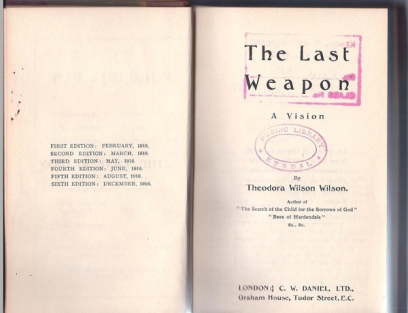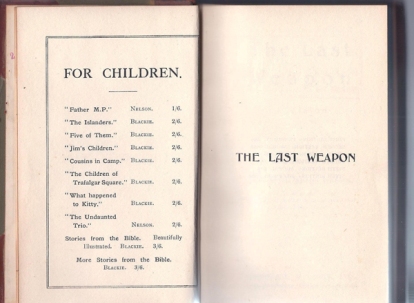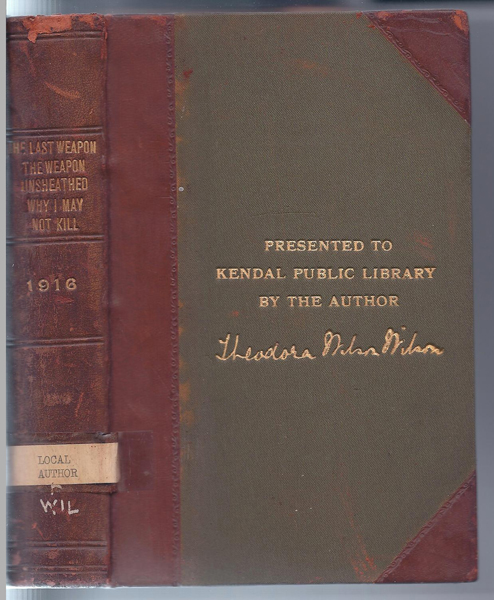Theodora Wilson Wilson
Born in 1865 in Kendal Theodora Wilson Wilson attended the Friends School in Stramongate. Her father was Isaac Whitwell Wilson JP, of Castle Lodge, Kendal, a woollen manufacturer and her mother Anne Bagster, of the publishing house who produced Bibles. Theodora became a prolific author of 62 published books of which 26 were for children. She wrote often with a religious theme but it was her romances which were particularly popular. Critics stressed the author's ability to depict character sympathetically and evocatively bring alive the Westmorland landscape. Her fiction was accepted by leading London publishers and she had two plays put on at West End theatres.
Her novels were of the time conforming to the idea that fiction should be worthwhile, uplifting and moral. However there was a dissenting message in much of her writing reflecting her Quaker faith. The T'Bacca Queen (1901, pub Edward Arnold) looks at the social and economic problems within the Edwardian class system. The background to the novel is Kendal's tobacco and snuff industry contrasting the lives of an heir to £100,000 and a mill girl on ten shillings a week. Her subsequent novels increasingly carried a social and political comment.
She spoke against compulsory military training in 1913. A committed pacifist she took over the editorship of the New Crusader after the imprisonment of the founder of the magazine, Wilfred Wellock, as a conscientious objector in 1916. In 1917 Theodora published an anti-war novel The Last Weapon. With her work on the New Crusader she was regarded as subversive and in March 1918 18,000 copies of The Last Weapon were seized and pulped. This led to questions in Parliament; had it become an offence to put forward the Quaker view of war in fiction? Sir George Cave, the Home Secretary, replied that he believed the book contravened the Defence of the Realm Act. Her follow up novel The Wrestlers was also confiscated by the police. This novel features Westmorland Quakers, socialists and dissidents from all over Europe who expose the iniquities of Russia's Tsarist system of internal exile. Russia was of course a major war ally.
Wilson remained a committed pacifist all her life. She died in November 1941 in St Albans. Wilfred Wellock wrote that the pacifist cause 'never had a truer or more sincere and wholehearted servant'.
Based on Roger Smalley's dissertation 'Political Dissent in Westmorland 1887 - 1924'




